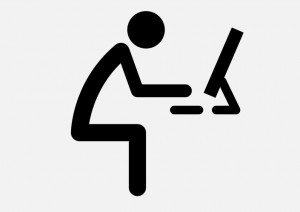 I have been helping folks remodel their cultural resource management or historic preservation job résumés for years now. Most résumés had the right information, followed grammatical rules, and were textbook manifestations of what the internet and most résumé-writing books tell us to do. But they weren’t optimized for the CRM or heritage conservation jobs their owners were applying for.
I have been helping folks remodel their cultural resource management or historic preservation job résumés for years now. Most résumés had the right information, followed grammatical rules, and were textbook manifestations of what the internet and most résumé-writing books tell us to do. But they weren’t optimized for the CRM or heritage conservation jobs their owners were applying for.
The following is a section of my forthcoming book “The Successful Résumé: Writing for Cultural Resource Management, Historic Preservation, and Heritage Conservation Jobs.” These simple tips will go a long way towards helping your resume land you a interviews for cultural resources, historic preservation, or heritage conservation jobs:
Keywords are Key
Human beings, including hiring managers, have the power to make decisions based on the personal feeling created by the impact of your résumé. People can make subjective and judgmental decisions to offer you an interview based on myriad factors gleaned from the words you write on your résumé. In the old, pre-computer days, managers and HR departments actually read (or, at least scanned) a paper copy of every résumé and application for each job posting. They weeded out the “best” candidates from that paper mountain using their instincts, references, and the pre-résumé networking conducted by the applicant.
Those days are gone. Now we have the machines.
In order to convince the computers of your suitability for the position, you need to choose your words wisely. Including and emphasizing key words from the job posting will help you prove your point– that you can do the job and deserve an interview. The best keywords are industry or company-specific nouns or phrases that are particular to the position you want to interview for. Keywords extracted directly from the job posting are best. These words will be different for each industry, field, and position. Remember, you need to sprinkle the keywords strategically throughout your résumé in a manner that helps your optimization for the computer program AND for the human readers. Sound tough? It’s easier than you think.
Here are some tips for proper keyword use:
- Find 5 to 10 job posts for the position you’re trying to interview for. They can be old or current. Look for similar phrases, activities, skills, job requirements, job titles, degrees, certifications, jargon, industry-specific buzzwords, computer packages, and professional organizations. Choose around 8 of these commonly used keywords and sprinkle them throughout your résumé.
- Look for frequently used words or phrases in the posting for the job you’re applying for. Make sure you put these in your résumé. Pay special attention to keywords that appear more than once in the job post.
- Use the exact job title for the position you’re applying for in your personal summary section, if possible.
- Repeat some of the key skills more than once in your personal summary and accomplishments sections.
- Make sure to accentuate industry-specific AND job-specific keywords. That way you don’t have to completely redo your résumé for every single job.
These tips should make your résumé look much better to the machines and should keep you out of the “reject” pile. It will also make you look like the perfect applicant, which is what you’re striving for.
I would really love to hear from you. If you have any questions or comments, write below or send me an email.
Learn how my résumé-writing knowledge helped four of my fellow archaeologists land cultural resources jobs in a single week!
Join the Succinct Research email list and receive additional information on the CRM and heritage conservation field.


